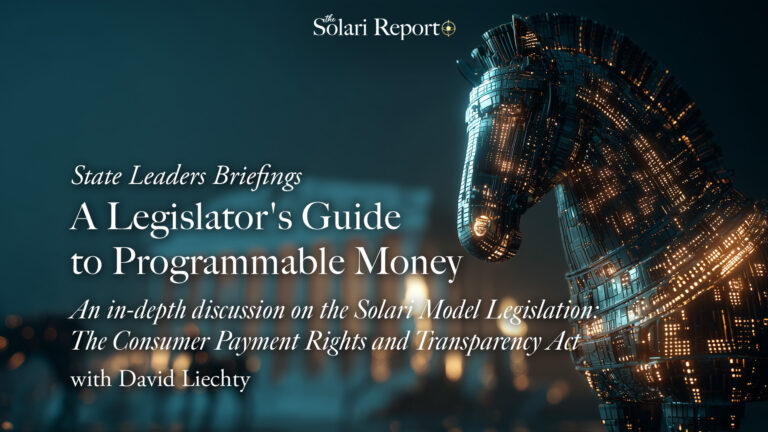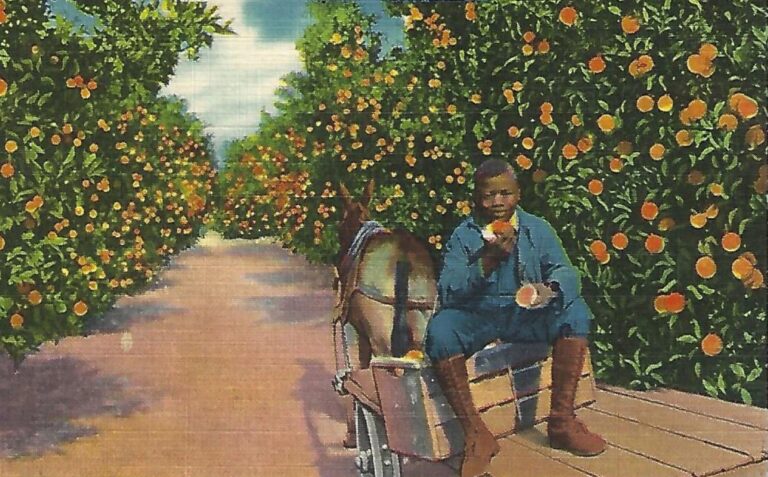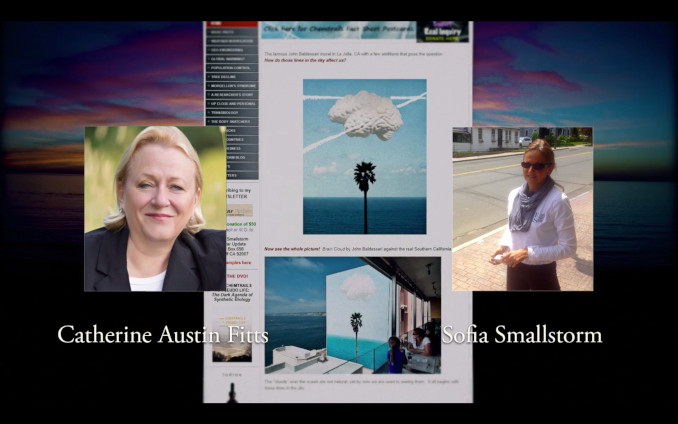“We’re dumping it in our soil, it goes into the water system, runs off into our rivers, some of it settles into our deep fossil aquifers that have been clean for billions of years [and] are now contaminated. We’ve got all of that contamination underneath us, and then you get the mobilization of the water cycle. You get evaporation. You get clouds. You get rain. In every single part of that cycle, you’ve got glyphosate, which is the devastating story about our food chain again, of course. Because as consumers, we are waking up to reality, we have got to get organic; we’ve got to get all these chemicals out of our diet. So we’re eating organic food, we’re getting all these things at the grocery store, yet, if it rained on our crop, you’ve got glyphosate! …We are literally annihilating the ecosystem around us and annihilating our health.” ~ Dr. Zach Bush
By Catherine Austin Fitts
It’s easy to understand that we are experiencing a rising tide of environmental toxicity. Just drive around and look at the trees. Or get sick after a year of eating GMO food grown with significant amounts of chemicals. Or listen to reports of bee populations disappearing. Or see your house covered with a nasty grey film from the spraying shortly after you pressure wash it, which you must do again and again. Or watch videos that describe the number of nuclear tests—including upper atmosphere tests. Or eat out at the local diner and listen to chronic coughing. The question is, what exactly is happening, and what should we do about it?
One piece of the puzzle is glyphosate. People who I know and trust repeatedly tell me that understanding glyphosate is critically important. Beware glyphosate, they say, and do everything you can to get it out—and keep it out—of your body and ecosystem.
Sofia Smallstorm, author of Avatar Update, joins me this week on The Solari Report to discuss glyphosate—what it is and why she’s so concerned. We discuss her recent stories on polluted Florida shorelines and global thoroughbred racehorse deaths—and the possibility that glyphosate and environmental toxicity are threatening whole industries and economies.
In Let’s Go to the Movies this week, I will discuss Farmers Footprint. This film series explores scientific findings from Zach Bush, MD and soil health expert Dr. Allen Williams of Soil Health Consultants, LLC, who identify the root cause of the current chronic disease epidemics and their connection to agriculture that uses toxic chemicals. Their goal is to help farmers convert to regenerative farming in a model that improves both the quality of food for people and the lives and economics of farmers.
Who’s your farmer? Who’s your banker? Where’s your money? Your consumer and banking choices can make an important contribution to supporting our farmers who preserve and rebuild environmental health.
In Money & Markets, I will be talking with you from back home in Hickory Valley, Tennessee. E-mail your questions for Ask Catherine or post them at the Money & Markets commentary here.
Talk to you Thursday!
Related Reading:
Sofia’s websites:
Price Economics
http://www.AvatarProducts.com
http://www.SofiaSmallstorm.com
Related Solari Reports:
Solari Food Series – Dr. Don Huber – Food Patriot
The Food Series – https://food.solari.com






















































































































After listening to your chat I decided to give a tablespoon of apple cidre vinegar a try. After all, I thought to myself, “What harm could there be in it?”. It’s cheap, not habit forming, painless and unlikely to have any negative effects, So, why not? The next morning I woke up at 4 am fully refreshed, this without the aid of an alarm clock. I continued the tablespoon of vinegar every day and since then every morning I’ve been waking up early on my own, completely rested. It’s amazing. It’s as though I’ve been given a present of 3 extra hours a day. I don’t know if it’s perhaps a mere coincidence or not, but I’m definitely planning to continue with the vinegar. I wonder if anyone else has had similar experiences.
Wow. Sounds like you really needed it. Mine was never that transformative. I am starting again when I get back to HV – using Braggs. Will let you know.
Curious what would happened if you started to add iodine as well.
This interview was a Red Button moment for me. As a former commercial agriculturists, a Pomologist, I used Roundup and other pesticides. I grew up on a Section Farm where much worse, DDT, arsenic, nicotine suphate and much more.
We we’re on board with increasing yeilds to feed the world. At the time, 1970, Roundup seemed like a miracle.
Where I lived we all grew our food, gardens and fruit using the old ways.
We didn’t hear about organic food until the late 1970’s.
The commercial operations were separate and how we grew or what was applied set by the Marketing Agencies and the extension center WSU research.
We had to use what was recommended or we couldn’t use the marketing agencies, the storage facilities or shipping.
By the early 1990’s Organic Apple Farming techniques were being tested and implemented in our County.
The big problem is what if you own millions in land that the FDA organic standards reject as usable land for organic? In addition one had to let the land be not farmed with commercial pesticides for 13 years. There was no extension center, or marketing for Organics then.
If I bought virgin land and planted I would have to carry 15 years of costs to viable production profit levels.
Takes really deep pockets. For a small operation 20 million in land minimum, labor, and production expense for 15-17 years before profit of any merit.
The ones in our area who made it work grew marijuana to fund the pubic farm.
It’s a crazy bind Agriculturists are in. I’m very pleased to hear you not making we farmers the bad guys. I’m even happier to hear people are helping farmers get out of the prison of the current system.
I have been out of the Agriculture game for 15 years. The regulation, immigration, the Organics shift all contributor to leaving.
I realized, as I write this, if I had sold and switched to organics my farms would just now be profitable enough to support me…if it was a good weather year.
This interview was a Red Button moment for me. As a former commercial agriculturists, a Pomologist, I used Roundup and other pesticides. I grew up on a Section Farm where much worse, DDT, arsenic, nicotine suphate and much more.
We we’re on board with increasing yeilds to feed the world. At the time, 1970, Roundup seemed like a miracle.
Where I lived we all grew our food, gardens and fruit using the old ways.
We didn’t hear about organic food until the late 1970’s.
The commercial operations were separate and how we grew or what was applied set by the Marketing Agencies and the extension center WSU research.
We had to use what was recommended or we couldn’t use the marketing agencies, the storage facilities or shipping.
By the early 1990’s Organic Apple Farming techniques were being tested and implemented in our County.
The big problem is what if you own millions in land that the FDA organic standards reject as usable land for organic? In addition one had to let the land be not farmed with commercial pesticides for 13 years. There was no extension center, or marketing for Organics then.
If I bought virgin land and planted I would have to carry 15 years of costs to viable production profit levels.
Takes really deep pockets. For a small operation 20 million in land minimum, labor, and production expense for 15-17 years before profit of any merit.
The ones in our area who made it work grew marijuana to fund the pubic farm.
It’s a crazy bind Agriculturists are in. I’m very pleased to hear you not making we farmers the bad guys. I’m even happier to hear people are helping farmers get out of the prison of the current system.
I have been out of the Agriculture game for 15 years. The regulation, immigration, the Organics shift all contributor to leaving.
I realized, as I write this, if I had sold and switched to organics my farms would just now be profitable enough to support me…if it was a good weather year.
https://youtu.be/WFZMevDIdd4
Secret Ingredients Jeffrey Smith and Amy Hart
Documentary
Must see
Definately! It is on my list.
https://youtu.be/WFZMevDIdd4
Secret Ingredients Jeffrey Smith and Amy Hart
Documentary
Must see
Definately! It is on my list.
Sophia didn’t make her point about why the horses are breaking their legs and people are getting knee and hip replacements even in their 50’s now. Stephanie Seneff explains that glyphosate is almost identical to glycine, the most common amino acid that is a protein building block. Glyphosate has one extra molecule on it. Our tissues and cartiledge and joints are full of collagen, which has a very high amount of glycine in it. Stephanie Seneff hasn’t proved it yet but all the evidence points to the body substituting glyphosate for glycine when it builds protein in the body, which doesn’t work. With glyphosate substituting for glycine the protein MISFOLDS and is weak bond. This is why people and horses are breaking down. I agree iodine is probably deficient in most people, but Dr. Don Huber, Stephanie Seneff and Zach Bush NEVER mentioned iodine as a solution to the glyphosate problem. They all said that Mott’s apple cider vinegar, Kambucha, saurkraut juice, and kimchi all have the enzyme that can break the glyphosate bond, which is very difficult to break without these other enzymes.
Sophia didn’t make her point about why the horses are breaking their legs and people are getting knee and hip replacements even in their 50’s now. Stephanie Seneff explains that glyphosate is almost identical to glycine, the most common amino acid that is a protein building block. Glyphosate has one extra molecule on it. Our tissues and cartiledge and joints are full of collagen, which has a very high amount of glycine in it. Stephanie Seneff hasn’t proved it yet but all the evidence points to the body substituting glyphosate for glycine when it builds protein in the body, which doesn’t work. With glyphosate substituting for glycine the protein MISFOLDS and is weak bond. This is why people and horses are breaking down. I agree iodine is probably deficient in most people, but Dr. Don Huber, Stephanie Seneff and Zach Bush NEVER mentioned iodine as a solution to the glyphosate problem. They all said that Mott’s apple cider vinegar, Kambucha, saurkraut juice, and kimchi all have the enzyme that can break the glyphosate bond, which is very difficult to break without these other enzymes.